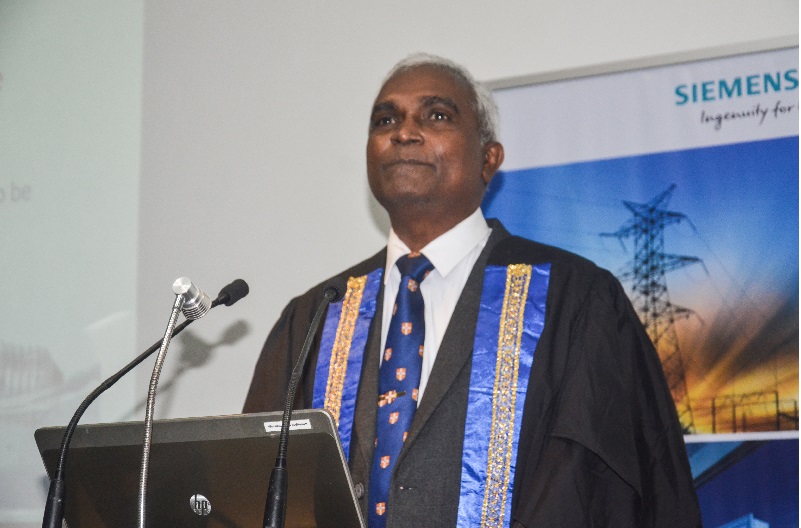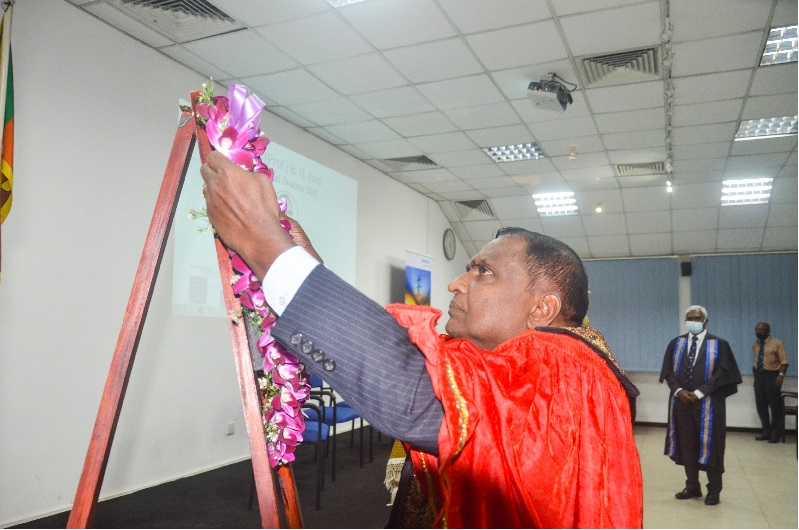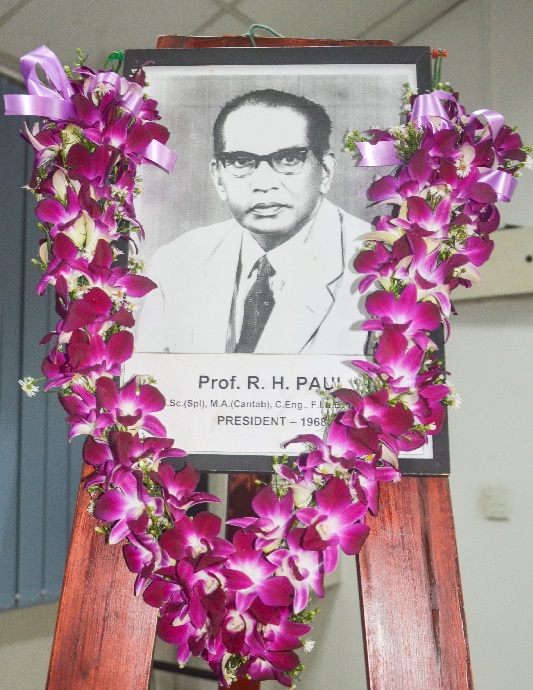Eng. (Prof.) R. H. Paul Memorial Oration 2021
By PUBLICITY DIVISION (IESL)
The IESL commemorates birth anniversaries of engineering greats who have passed away after doing yeoman service towards the development of the country and to improve the living standards of fellow countrymen. The memorial lectures, delivered by persons of eminence in their respective fields, are usually on the life and work of these great men or on subjects of relevance to the times and to which the late engineers have contributed during their life time.

This year the R. H. Paul memorial lecture was delivered by Eng. (Dr.) Tilak Siyambalapitiya on The Changing Structure of the Electricity Industry. The event was held on 9th February 2021 from 5.15 PM. Due to the prevailing restrictions for organizing events the memorial oration was organized in hybrid mode, where only a several participated physically for the memorial oration and the rest were joined through online Zoom platform.

The event was attended by Eng. K P I U Dharmapala, President of the IESL, Eng. Arjuna Manamperi, President Elect of the IESL, Past presidents of the IESL, council members, relatives of Eng. (Prof) R H Paul, members of the IESL and many more. There were around 250 participants joined online to commemorate this engineering giant.
The event began with the traditional lightning of the oil lamp and the late engineer was honored by the president of the IESL by putting on a gland to his portrait

Eng. (Prof) R H Paul brief bibliography
The late Eng. (Prof.) R. H.Paul is part of the history of development of engineering education in the country. In 1933 he joined the Ceylon Technical College, Colombo, the only institution for engineering education in the country at that time, as a lecturer.

Engineering Education
The improvements he brought to the curriculum and laboratory facilities were said to be largely responsible for the recognition of the College by the University of London in 1942 for preparing students for the B.Sc (Engineering External Degree) of the latter. He held the post of Director of the College from 1944-49.
Eng. (Prof.) R. H. Paul is part of the history of development of engineering education in the country. In 1933 he joined the Ceylon Technical College, Colombo, the only institution for engineering education in the country at that time, as a lecturer. The improvements he brought to the curriculum and laboratory facilities were said to be largely responsible for the recognition
of the College by the University of London in 1942 for preparing students for the B.Sc (Engineering External Degree) of the latter. He held the post of Director of the College from 1944-49
Despite his engagement with teaching he had written many research papers, in appreciation of one of which he won the overseas premium in 1944. When the University of Ceylon was established in 1950, he was its first professor of Electrical Engineering and successfully met the challenges of producing new engineers with great technical skills in large numbers to meet the post-independence need for development in the country. He had to train staff and develop new courses for the university, at first in the temporary location in Colombo and later at its permanent location at Peradeniya.
The electrical engineering laboratory complex at the University of Peradeniya is based on a concept developed by him. He retired from service in 1968. Besides educating he showed keen interest in the engineering profession and actively participated in its development, becoming the president of IESL in 1968. He is also a Fellow of the Institution of Electrical Engineers London and also was its overseas representative in Sri Lanka from 1964-78.
Technological advancements
He was also a founder member of Sri Lanka Association for Advancement of Science and served as its General President in 1945. The government sought his service on various matters and he was a member of the Commission on Broadcasting and Information (1969) and the Advisory Board of Technical Education (1966). He passed away on July 3, 1978 at the age of 74. His commitment to his profession was total.
Living in an era of rapid technological advancements and phenomenal speeds of transfer of technology it may be difficult to imagine the slow yet steady pace at which the foundations of the study and practice of Electrical Engineering in the country were laid through the hard work of people like the late Eng. (Prof.) R. H. Paul and others tasked with the creation of professionals capable of mastering an emerging field. Electrical energy was first introduced to Sri Lanka by a private enterprise in 1895. Its first commercial use was for lighting up the then city of Colombo. The electrically operated Tram Car and Trolley Bus Services of a bygone era, though now extinct, were also stages in the history of development of electrical energy for public use in the country.
The event was live broadcasted through IESL YouTube Channel and SLT Event Channel. The event was sponsored by Dimo Lanka Pvt Ltd.
Photo Gallery
R H Paul 2021 | Powered by Box





